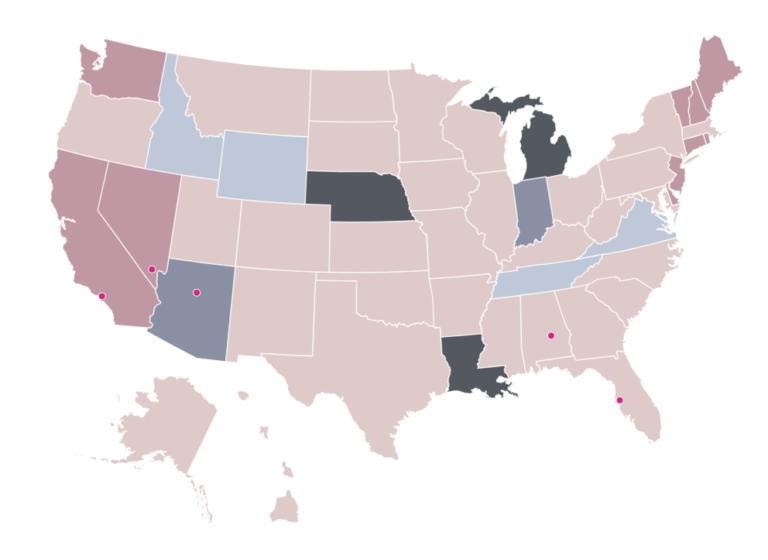Both as a surrogate or intended parent, you need to pay attention to the laws of the state where the surrogate lives to plan ahead the surrogacy journey.
If surrogacy is legal in your state, if you can legally receive a compensation for it, what sort of surrogacy contracts are allowed and at what stage of the process, etc.
Which state your surrogate may come from for the surrogacy to be legal (your state of residence doesn’t influence the process), what sort of surrogacy contracts are allowed and at what stage of the process your parenthood will be recognized, what specific terms apply for international parents, same sex parents, etc.

For our full interactive map, view this page on your laptop.
For each state we provide answers to the following key surrogacy legal questions:
Because the surrogacy legal field is constantly changing, it is important to work with an experienced surrogate attorney in the state where your surrogate will deliver your baby to ensure you are able to successfully establish your legal parentage.
![]()
Surrogacy contracts are void and unenforceable by statute; however, surrogacy is practiced and courts issue parentage orders in certain cases. Click on any state on the map for more detailed information.